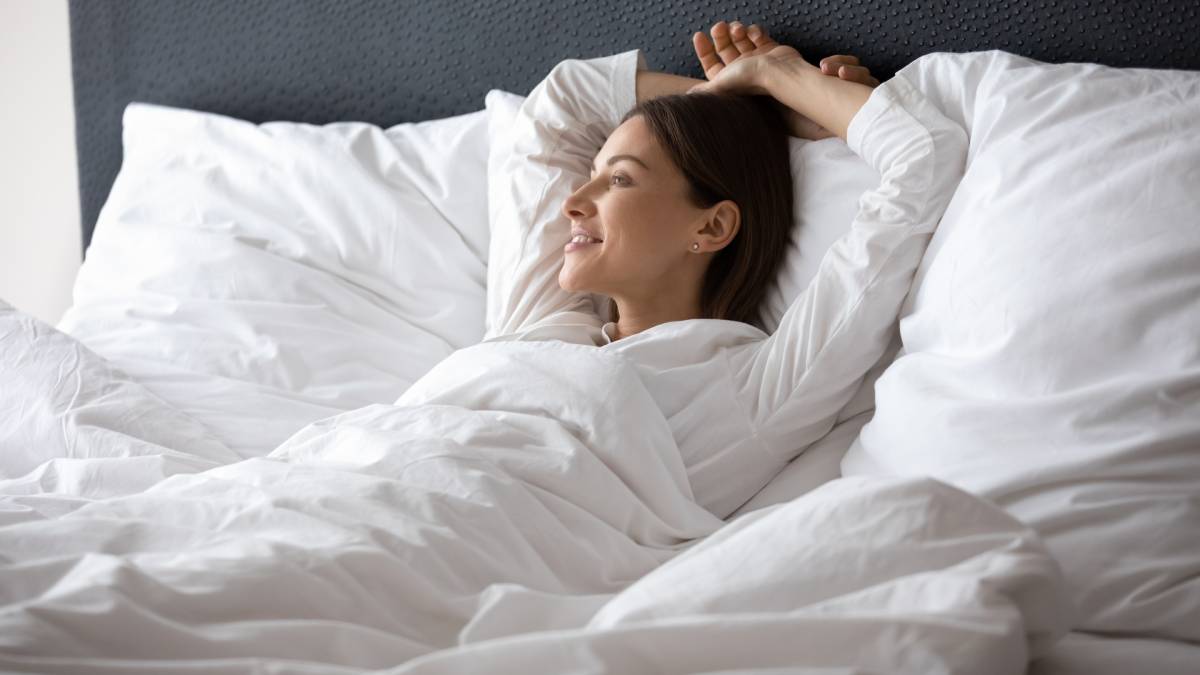You’ve probably heard a lot about ‘thread count’ in sheets.
People like to brag about how they can no longer sleep on anything less than 1000-thread count bedding and Manchester shops like to attach stickers to their sheets with the thread count number. But is it important?
Well, yes, but then again it depends.
Sleep advisers Sleep Foundation says we may be falling for clever advertising.
“It’s is used as a rough indicator of the softness and feel of a fabric,” senior editor Daniel Noyed says.
“It’s also used heavily in marketing to imply that a specific product is of a higher quality than competing sheets.
“While this is all true to a certain extent, thread count is far from the only consideration when it comes to the overall quality of a set of sheets.”
What exactly is thread count?
Not surprisingly, thread count refers to the number of threads in a piece of cotton sheeting. Both the horizontal and vertical threads are counted.
The higher the count, the more comfortable the sheet is supposed to be, but there are a number of problems with that premise.
First of all, there is no standard measurement and no regulations to enforce standards. It could be per inch, it could be per centimetre, it could be entirely the manufacturer’s own measurement.
Let’s face it, they know you are probably not going to crack out the magnifying glass and count them yourself, so you are relying entirely on the honesty of others.
This is a problem because many manufacturers will claim a high thread count, but actually what they are ‘counting’ is the is the ply of the threads, rather than the threads themselves.
According to CHOICE, a count of 200 is a good starting point for one-ply cotton sheets. When you get up to the 800-1000 thread count, manufacturers are generally using use two-ply and while these sheets are more expensive, they are less durable.
Choice recommends a minimum of 200-400 count for one-ply sheets, but other factors can make a sheet comfortable.
Between the sheets
Picture this, a sheet of 1000 thread count, but those threads are a low-quality man-made fibre. Are you sweating just thinking about it? I want to rip those sheets off and I am only imagining them.
So, it’s not just the thread count, but also what material is used to make those threads.
Natural, breathable materials such as cotton, linen and bamboo make for much better sheets than your nan’s favourite polyester ones. Bless her.
If you are considering silk sheets and can’t find a thread count that’s because they use a Japanese measurement called momme. To make it simple, look for something in the 17-22 momme range because explaining mommes is going to take up too much time.
Flanelette is measured differently again, in grams per square metre (GSM) and the higher the GSM is the more dense the fabric will be.
Heavyweight flannelette will be in the 170+ GSM range. Lighter GSM will be less durable, but more breathable.
And there’s also how the sheet is woven. Two popular weaves are percale, with a simple under and over pattern, or sateen with a more tightly woven pattern which generally means a higher thread count.
Percale is more durable, smooth and crisp, while sateen is softer, but often pills.
Egyptian sheets are another popular choice, and refer to the species of cotton they are made from rather than the place.
So like most things, don’t be fooled by the marketing and it comes down to preference.
Try and feel the fabric before you buy and match your bedding to your sleeping style.
What’s your preference for sheets? Does the thread count influence your buying? Why not share your tips in the comments section below?
Also read: How often do Aussies change their sheets?

